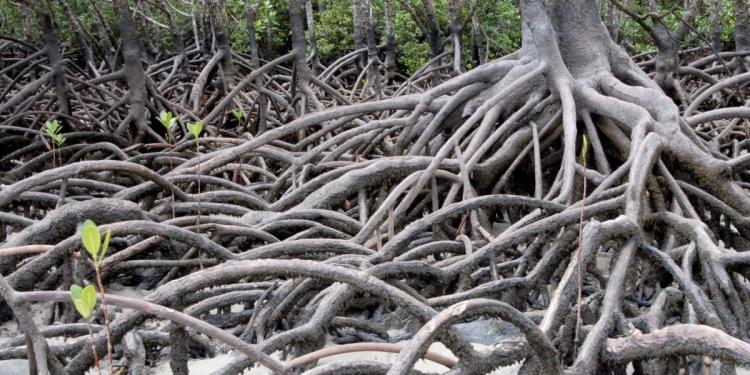In news– Scientists at the DBT-Institute of Life Sciences, Bhubaneswar and SRM-DBT Partnership Platform for Advanced Life Sciences Technologies, SRM Institute of Science and Technology,Tamil Nadu have reported the decoding of whole genome sequence of a highly salt-tolerant mangrove species, Avicennia marina.
Key updates-
- This study assumes significance as agriculture productivity globally is affected due to abiotic stress factors such as limited water availability and salinization of soil and water.
- The genomic resources generated in the study will pave the way for researchers to study the potential of the identified genes for developing drought and salinity tolerant varieties of important crop species of the coastal region.
- Avicennia marina is one of the most prominent mangroves species found in all mangrove formations in India.
- Avicennia marina, also known as gray mangrove or white mangrove, is a shrub or tree belonging to the Acanthaceae family. T
- They are generally 10–14 m long and have light gray or whitish bark with stiff, brittle, thin flakes.
- It is a salt-secreting and extraordinarily salt-tolerant mangrove species that grows optimally in 75% seawater and tolerates > 250% seawater.
- It is among the rare plant species, which can excrete 40% of the salt through the salt glands in the leaves, besides its extraordinary capacity to exclude salt entry to the roots.
- It has anticancer, anti-HIV, antidiabetic, anti inflammatory, and other beneficial effects.
- Extracts of A. marina leaves have been found to be efficacious against fungi like Aspergillus flavus, Alternaria citri, Penicillium italicum, and Penicillium digitatum.














